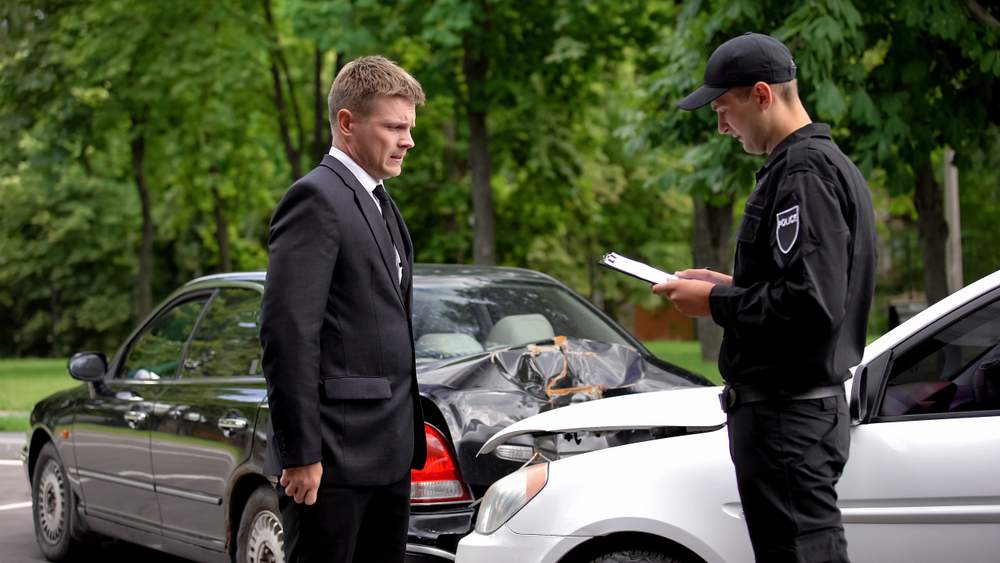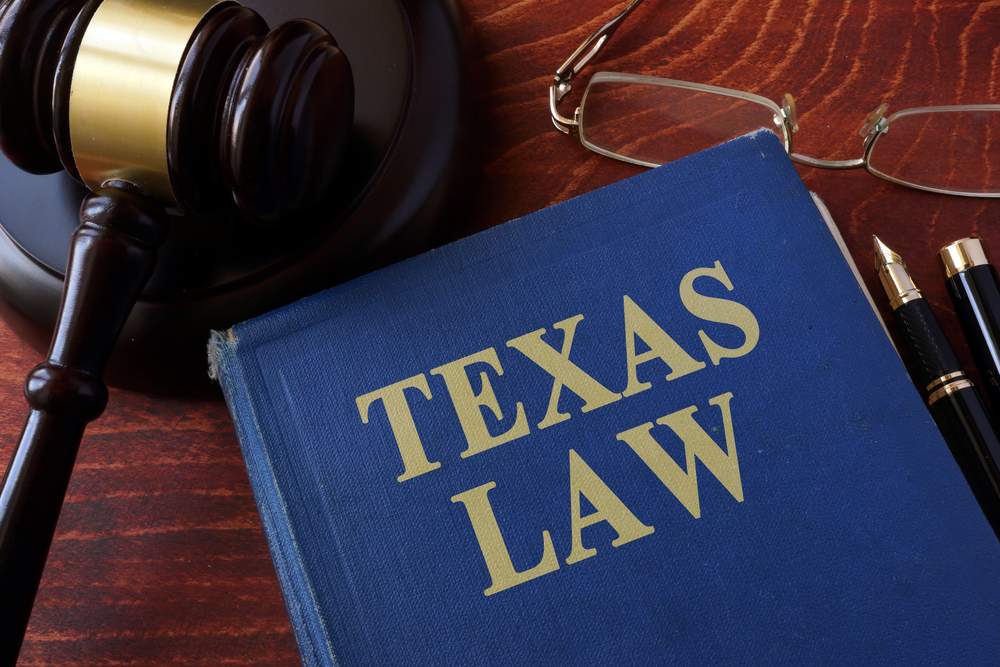Car accidents can be devastating, causing physical injuries, property damage, and emotional trauma. Understanding the car accident laws in Texas is vital for anyone involved in a motor vehicle collision. Texas follows a fault-based system, meaning the person responsible for the accident is typically liable for the damages for violating a traffic law. Car accident lawyer in Houston, Texas, Greg Baumgartner, will explore critical aspects of car accident laws in Texas.

Texas Car Accident Laws
Texas auto accident laws are many. Car accident attorney Greg Baumgartner at Baumgartner Law Firm highlights the main laws that can impact a personal injury case.
Statute of Limitations in Texas
The statute of limitations refers to the time limit for initiating a legal action. The Statute of Limitations in Texas for filing a personal injury claim resulting from a car accident is generally two years from the accident date. The victim might lose the right to get damages if the lawsuit is not filed within this time frame.
Texas Comparative Negligence
Texas follows a comparative negligence rule when determining liability in car accidents. According to this negligence rule, the injured party can still get damages even if they are partially at fault for the accident. But, their compensation will be reduced in proportion to their assigned percentage of fault. If the person hurt is found to be 51% or more at fault, they may be barred from recovering any damages.
Mandatory Insurance Requirements
Texas requires drivers to carry liability insurance coverage. The current minimum coverage limits in Texas are:
– $30,000 for bodily injury per person
– $60,000 for bodily injury per accident
– $25,000 for property damage per accident
Failure to maintain insurance coverage can result in penalties, fines, and potential license suspension.
Optional collision coverage is recommended, as is PIP coverage. Houston, TX, has a high number of uninsured drivers. Protecting yourself in case an uninsured driver hits you is important.
Reporting a Car Accident in Texas
In Texas, it is mandatory to report a car accident to law enforcement if the accident results in injury, death, or property damage exceeding $1,000. The rule requires the accident to be reported within ten days of the incident. Failure to report a qualifying accident can result in legal consequences.
Filing a police report also can help with a car accident injury claim.
Seat Belt and Child Restraint Laws
Texas law requires all occupants in a moving vehicle to wear seat belts. Children younger than eight must be secured in an appropriate child safety seat or booster seat unless they are taller than 4 feet 9 inches.
No-Fault Insurance
Texas follows a fault-based system and does not have a no-fault insurance law. Injured parties generally seek compensation from the at-fault driver’s insurance company through a personal injury claim. People may also be able to collect benefits under their auto policy or that of the owner of the vehicle they are in at the time of the accident. Examples include PIP, Med Pay, and UM or UIM benefits.
Understanding the car accident laws in Texas is critical for protecting your rights and ensuring you receive the compensation you deserve. If you are hurt in a car accident, speak with a leading personal injury attorney to help with your claims.
Driving Laws in Texas

In addition to the general car accident laws mentioned earlier, specific regulations in Texas govern driving behaviors such as speeding, yielding the right of way, and other related actions. Understanding these laws is essential for promoting road safety and reducing the risk of accidents.
Here are some common violations used when a ticket is issued after a car accident in Texas.
Speeding
Speeding is a common cause of car accidents and can have severe consequences. In Texas, the maximum speed limits are generally as follows:
– 75 miles per hour on most highways and interstates in rural areas
– 70 miles per hour on highways and interstates in urban areas
– 30 miles per hour in urban districts and residential areas
– 15 miles per hour in alleys and parking lots
However, it’s important to note that speed limits can vary based on specific road conditions and local ordinances. It is the responsibility of drivers to obey posted speed limits. And adjust their speed according to the prevailing conditions to ensure safe driving.
Right of Way
Yielding the right of way is crucial for preventing collisions at intersections and maintaining traffic flow. In Texas, there are specific rules regarding yielding the right of way in various situations:
– At an intersection without traffic signals or signs
The driver approaching from the right has the right of way unless otherwise indicated. Drivers must yield to vehicles already in the intersection or approaching from the right.
– At a four-way stop or an intersection with stop signs
The first vehicle to arrive at a complete stop has the right of way. If two or more vehicles arrive simultaneously, the vehicle on the right has the right of way.
– When making a left turn
Drivers making a left turn must yield to the oncoming traffic, including vehicles going straight or making right turns.
– When entering a roadway
Drivers entering a roadway from a private road, driveway, or alley must yield to the vehicles already on the street.
– When merging: Drivers merging onto a highway or changing lanes must yield to the vehicles already on the highway.
Following Too Closely (Tailgating)
Maintaining a safe distance between vehicles is crucial to prevent rear-end collisions. Texas law requires drivers to keep a safe following distance based on the speed and conditions of the road. In general, drivers should maintain at least a two-second following distance.
The distance should be increased in adverse weather conditions or when driving behind large vehicles.
Reckless Driving
Texas law defines reckless driving as willful or wanton disregard for the safety of others. Reckless driving is a serious offense that endangers the lives of others on the road. It includes actions such as excessive speeding, aggressive driving, racing, and other dangerous behaviors.
Violating reckless driving laws can result in significant fines, license suspension, and even criminal charges.
Keeping a Proper Lookout
Texas law requires drivers to keep a proper lookout while operating a vehicle. This means staying attentive, scanning the road for potential hazards, and being aware of the surroundings. Failing to keep a proper lookout is a prime cause of car crashes.
Timely Application of Brakes
Drivers must exercise reasonable care and apply their brakes in a timely manner to avoid collisions. Quick reaction times and the ability to bring the vehicle to a stop are essential for preventing accidents, especially when sudden stops or obstacles occur.
Assured Clear Distance
Texas law requires drivers to maintain a clear distance between their vehicle and the auto in front of them. The distance should allow for a safe and timely stop, accounting for the speed of both vehicles, road conditions, and other relevant factors.
Obeying Traffic Signals
Obeying traffic signals, including traffic lights and stop signs, is crucial for maintaining order and preventing accidents. Drivers must adhere to red lights, stop signs, yield signs, and other traffic control devices. Not following traffic signals can result in serious accidents and legal consequences.
Driving While Intoxicated
Operating a vehicle while impaired by alcohol or drugs poses a significant risk to oneself and others on the road. Texas has strict laws in place to deter and penalize DUI offenses. Drunk driving accidents in Houston are common.
In Texas, it is against the law to operate a motor vehicle with a blood alcohol concentration (BAC) of 0.08% or more for individuals aged 21 and older. For drivers under 21, the legal limit is ANY detectable amount of alcohol.
Additionally, Texas has an implied consent law, which means that by obtaining a driver’s license, individuals are deemed to have consented to testing if suspected of DUI. Refusal to undergo testing can result in automatic driver’s license suspension.
The consequences and costs of driving under the influence in Texas can be severe. They may include fines, license suspension, mandatory alcohol education programs, probation, community service, and even imprisonment.
The severity of the penalties often depends on factors such as the driver’s BAC level, previous DUI convictions, and whether the DUI resulted in property damage, injury, or death.
Texas law also addresses driving under the influence of drugs, including illegal substances, prescription medications, and over-the-counter drugs that impair one’s ability to operate a vehicle safely.
Individuals need to understand that impaired driving includes not only alcohol but also the influence of drugs. They can face legal consequences if found driving under the influence of any substance impairing their driving abilities.
One or More Traffic Violations Usually Cause Auto Accidents
Understanding and adhering to these traffic laws in Texas is vital for promoting safe driving practices and reducing the risk of car accidents.
By obeying speed limits, yielding the right of way, maintaining a proper lookout, applying brakes in a timely manner, keeping an assured clear distance, and obeying traffic signals, drivers can help create a safer road environment for everyone.
Damages in Car Accident Injury Claims
Injured victims can make a claim for damages after an auto accident where someone else was mostly at fault. In Texas, personal injury damages can include the following:
- Pain and suffering
- Medical bills
- Mental anguish
- Disfigurement
- Disability
- Lost wages or reduced earning capacity
If you need help after an automobile accident, call Baumgartner Law Firm for a free consultation.
Have Questions About a Texas Car Accident Injury Case? Contact Baumgartner Law Firm for Answers!
Attorney Greg Baumgartner has helped car accident injury victims for over 35 years. Contact our Houston office for a FREE consultation about your rights and options on any injury case.
6711 Cypress Creek Pkwy, Houston, TX, 77069
Related Car Accident Resources:
Common Adjuster Tactics in Car Wreck Injury Claims
Can I Sue My Own Auto Insurance Company in Texas?
How On-Board Computer Data Can Help Your Texas Car Accident Case
Factors and Conditions in Texas Crash Reports
The Difference Between Car Accidents and Big Truck Wrecks in Texas
How Much to Expect from a Car Accident in Texas?
What are Most Lawyer Fees for Car Accidents?
How Long Does a Car Accident Case Take to Settle in Houston?
